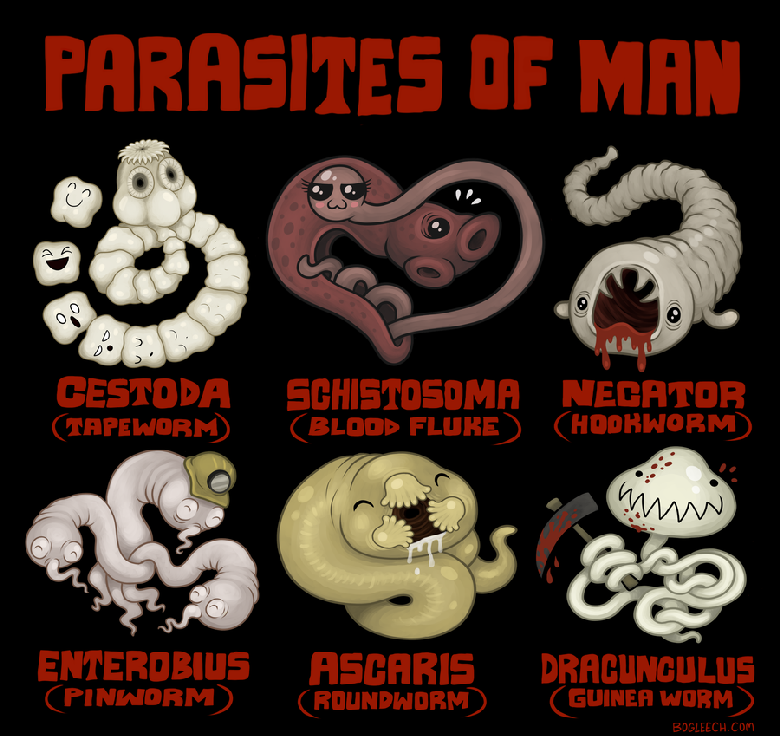206.WHAT IS A PARASITE?
Sometimes you hear people say they don’t want to live like parasites; they want to make their own way. A parasite lives with, in, or on another organism, the “host.”
All living things depend on one another. But the parasite lives with another organism in a very special way. The parasite takes from the host and gives it nothing in return!
A parasite may be either a plant or an animal, and it may live off either a plant or an animal. Occasionally, a parasite can live with many types of hosts, but usually there is only one kind of host it can live with. Sometimes, the parasite kills its host by taking too much of the nourishment the host needs, or it may give off substances which poison the host.
Nearly all forms of parasites produce large numbers of young and are very tough. If this were not true, the destruction they cause would destroy them, too!
Let us consider some organisms that are parasites. The smallest of these are bacterial germs. Such bacteria, as you know, can cause disease in man and in plants.
A little higher up are found fungus parasites. Ringworm in man is caused by one of these plant parasites, and other types can cause rust, mildew, and blights in plants.
There are many parasites in the animal kingdom. Here, too, the smallest are the most important ones. These are the microscopic, single-celled animals called Protozoa. These parasites cause African sleeping sickness, malaria, and other diseases among humans.
Certain worms are another group of animal parasites. A round worm called the trichina, causes trichinosis in pigs and in human beings. The hookworm and the tapeworm are other parasites. Still higher up on the scale are such parasites as fleas, ticks, and lice.



Leave a Reply